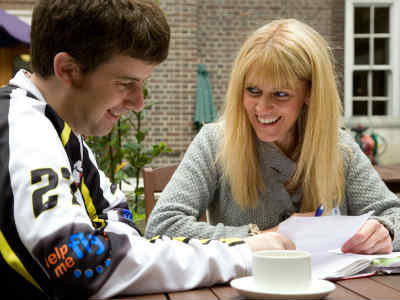
Hertfordshire has a transition team that sits within the council’s health and community services (formerly adult care services) department and starts to work with young people with autism from the age of 16 years. One of the practice issues currently for Hertfordshire is the criteria we have in place for service users diagnosed as having an autistic spectrum disorder (ASD).
At present if someone is diagnosed with an ASD and a learning disability and they meet Fair Access to Care Services (FACS) criteria (substantial or critical) then they are eligible for a service from the transition team from 16. However if they have autism without a learning disability or Asperger syndrome then this does not happen.
If an individual with Asperger syndrome meets eligibility criteria then adult mental health services, within Hertfordshire Partnership Trust, becomes responsible for their social care from the age of 18, along with any psychiatric or psychology services. However they do not currently work with the individual from 16, which can have an impact on the ability to assess need and develop person-centred plans prior to requiring adult services.
Additionally, young people with Asperger can be receiving numerous services such as child and adolescent mental health services (camhs), paediatrics and children’s services, thus making transition planning more difficult if not overseen by a transition team.
Improving Asperger support
In response, Hertfordshire is looking at an alternate model of service for those individuals without a learning disability, which will seek to address the transition issues as well as providing a more appropriate individual specific service. The council and NHS have jointly commissioned two Asperger support adviser posts, who will provide support to adult mental health services in their role as social care and health providers for individuals with Asperger syndrome, as well as working on new best practice models of transition and service delivery for this group of Hertfordshire citizens.
Young people with autism and learning disability receive specific person-centred plans around their future needs and developments. All parties involved with that person – including parents, schools and health workers – will look at their needs across housing, leisure, further education, advocacy, employment, friendships, special interests and health. This is usually discussed with all parties involved over a two-year period to maintain a structured and consistent approach for the young person moving into adult services and to understand any changes in need and aspirations as they approach adult services.
The transition team continues to work with people until they are 25 years when it is hoped that all the major ‘growing up’ life changes have taken place and they are settled into adulthood. At this stage the decision is then taken as to which adult team will oversee their ongoing support
.
There are some excellent examples of how well the transition process has worked for people with autism and a learning disability, and it is evident that this earlier involvement and the knowledge staff have gained from working with someone with autism from 16 years has been of immense benefit, both in terms of ‘good social work practice’ and improved outcomes for the person.
Feedback from families
We have held four conferences with people with autism, their families and other stakeholders in recent months and the following themes emerged:
- People with Asperger syndrome want something meaningful to do during the day, preferably employment, and the resounding message from all is that they feel they do not have learning disabilities or mental health problems;
- Parents and carers would like to see a transition process for all on the spectrum and clearly believe that early intervention will have the most positive outcomes for their sons and daughters;
- Families support the development of an autism partnership board so that all agencies are singing from the same hymn sheet.
Mark Dixon and Dave Cox are Asperger support advisers at Hertfordshire Council. They will be speaking on the subject of improving transition at Community Care’s conference on supporting adults with autism on 4 October. Register before 28 September for a discounted place.


 Bournemouth, Christchurch and Poole
Bournemouth, Christchurch and Poole  Hampshire County Council
Hampshire County Council  Lincolnshire County Council
Lincolnshire County Council  Norfolk County Council
Norfolk County Council  Northamptonshire Children’s Trust
Northamptonshire Children’s Trust  South Gloucestershire Council
South Gloucestershire Council  Wiltshire Council
Wiltshire Council  Wokingham Borough Council
Wokingham Borough Council  Children and young people with SEND are ‘valued and prioritised’ in Wiltshire, find inspectors
Children and young people with SEND are ‘valued and prioritised’ in Wiltshire, find inspectors  How specialist refugee teams benefit young people and social workers
How specialist refugee teams benefit young people and social workers  Podcast: returning to social work after becoming a first-time parent
Podcast: returning to social work after becoming a first-time parent  Podcast: would you work for an inadequate-rated service?
Podcast: would you work for an inadequate-rated service?  Family help: one local authority’s experience of the model
Family help: one local authority’s experience of the model  Workforce Insights – showcasing a selection of the sector’s top recruiters
Workforce Insights – showcasing a selection of the sector’s top recruiters 

 Facebook
Facebook X
X LinkedIn
LinkedIn Instagram
Instagram
Comments are closed.